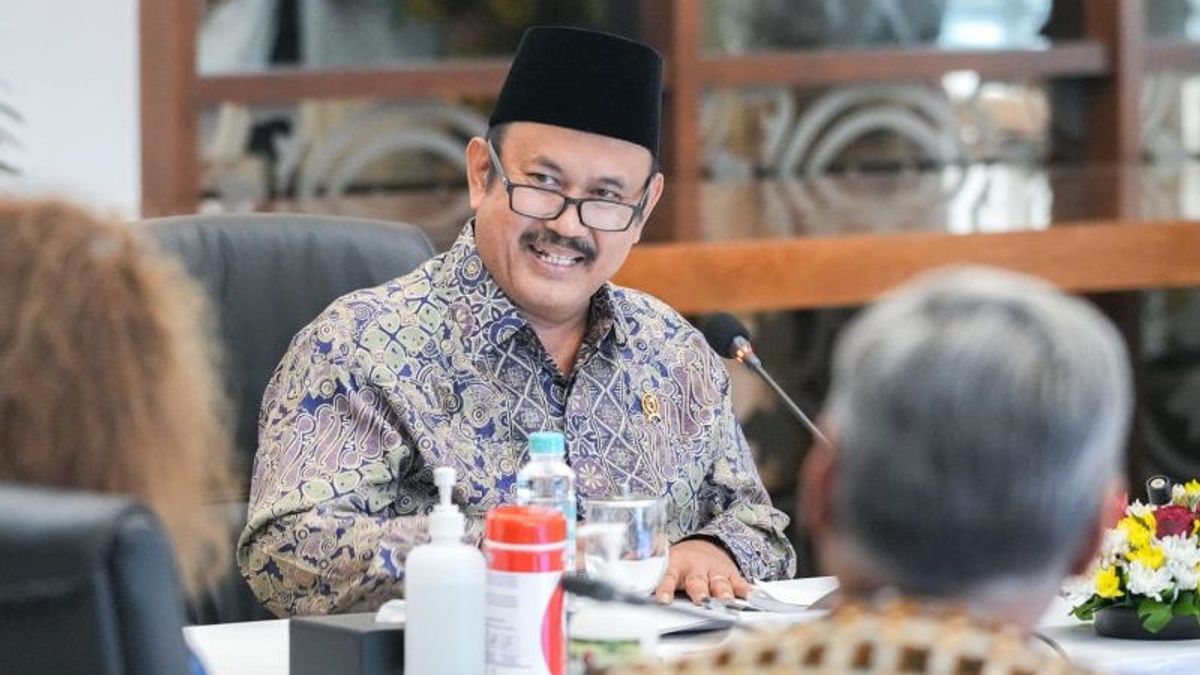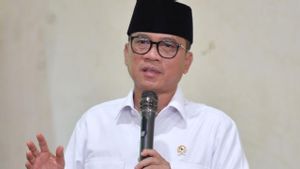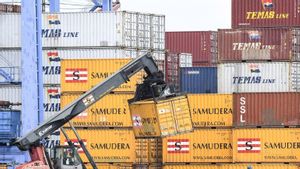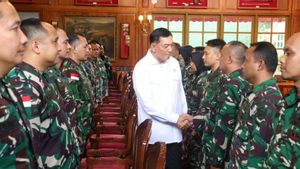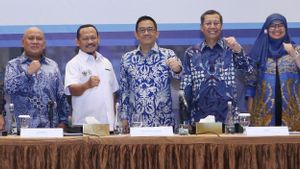JAKARTA - Minister of National Development Planning/Head of the National Development Planning Agency (PPN/Bappenas) Rachmat Pambudy said food self-sufficiency requires healthy and productive land.
"Food self-sufficiency as one of the flagship programs in the Vision and Mission of the President of the Republic of Indonesia in the next five years, requires healthy and productive land," said Rachmat Pambudy as quoted by ANTARA, Monday, December 16.
In the 2025-2029 National Medium-Term Development Plan (RPJMN), it has been emphasized that the vision and mission of various programs over the next five years requires transformative efforts, has a significant impact on the welfare of the community, and is based on the wealth of Indonesia's natural resources.
There are several efforts that can be made to improve soil health. Starting from the use of technology in carbon absorption, the development of biochar (carbon-rich solid material converted from organic waste), real steps for reformation (for the formation of forests in areas that were previously not forests) and reforestation, as well as increasing organic soil carbon on agricultural land in a sustainable manner.
Currently, he continued, the content of organic soil carbon on Indonesian agricultural land is relatively low and decreasing. It is recorded that around 77 percent of rice fields in Indonesia, especially in Java, have low soil carbon content, which is 1.25-1.91 percent.
Based on the Integrated Agriculture Survey from the Central Statistics Agency in 2021, there will be 89.5 percent of Indonesia's agricultural land with unsustainable status.
"This condition is mainly due to the low productivity of agricultural land, the high risk of using fertilizers and pesticides, and the issue of land ownership," said Rachmat.
Through the policy of strengthening soil health (soil health policy), it is expected to be a transformative step to ensure increased land productivity in Indonesia towards national food self-sufficiency.
また読む:
On that occasion, the Head of Bappenas also emphasized the urgency of the subsidized budget provided by the government for a number of types of fertilizers to be distributed effectively and efficiently.
"Soil health policy is expected to be a transformative step to ensure subsidies for fertilizers are in accordance with land conditions and plant needs. We believe that our agenda is a basic milestone in building policies to strengthen land health policies and increase land productivity in Indonesia, towards national food self-sufficiency," said Rachmat Pambudy.
The English, Chinese, Japanese, Arabic, and French versions are automatically generated by the AI. So there may still be inaccuracies in translating, please always see Indonesian as our main language. (system supported by DigitalSiber.id)
